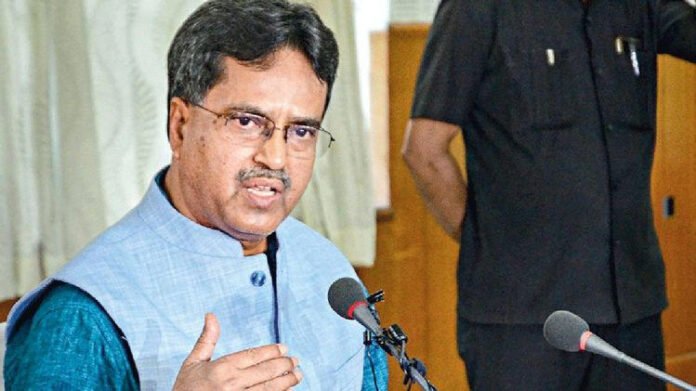The Tripura unit of the Bharatiya Janata Party (BJP) has announced a state-wide campaign to raise awareness about the Waqf Act, with Chief Minister Dr. Manik Saha declaring that the Act is designed to “benefit the common Muslims” and ensure transparency in the management of religious endowments.
Addressing a public gathering in Agartala, CM Saha emphasized that the Waqf Act should not be misunderstood or politicized, as it aims to empower ordinary members of the Muslim community by ensuring better administration of Waqf properties—lands and assets donated for religious or charitable purposes within Islam.
Aiming for Transparency and Access
“The Waqf Act, if implemented in its true spirit, will help prevent the exploitation of Waqf lands and ensure they are used for the welfare of the community,” Saha said. “This is not about politics, but about fairness, transparency, and giving voice to those who have long been excluded from decision-making around these assets.”
The Chief Minister also pointed out that historically, Waqf properties in several parts of the country have been subject to mismanagement and encroachment. Through proper registration, monitoring, and usage under the provisions of the Act, the government seeks to reclaim these assets for their intended social and religious purposes—benefiting educational institutions, health centers, and welfare projects.
BJP’s Campaign Strategy
The Tripura BJP Minority Morcha will spearhead the campaign, organizing awareness drives, community meetings, and digital outreach to educate the public, especially Muslim voters, about how the Waqf Act works. Pamphlets in Bengali, Hindi, and Kokborok will be distributed across districts with significant Muslim populations.
Party leaders say the goal is to clear misconceptions about the Act and challenge opposition narratives that portray the BJP as anti-minority. “The Waqf Act is being wrongly presented by some as a tool for state control over religious property. That is not the case. It ensures better governance of those properties and checks corruption,” said a senior state BJP leader.
A Calculated Political Outreach
Tripura, where Muslims constitute around 9% of the population, has seen relatively stable communal relations compared to some other northeastern states. Yet, the BJP’s push to engage with Muslim communities through the lens of legislative reform is being seen as a broader political strategy aimed at expanding the party’s appeal among minority groups.
Observers note that the campaign also coincides with national efforts by the BJP to reshape its image as an inclusive party, especially in the run-up to the 2024 general elections and state-level polls. While opposition parties have criticized the BJP’s track record on minority rights, initiatives like this are aimed at challenging that perception at the grassroots level.
Opposition’s Mixed Response
Predictably, the opposition has responded with skepticism. Leaders from the Congress and the CPIM have accused the BJP of using the Waqf Act campaign as a political gimmick. “This is not about empowering Muslims; it’s about winning elections,” said a Congress spokesperson. “If they really cared, they would address issues like unemployment and education first.”
However, some community leaders have cautiously welcomed the move, saying that any effort to clean up Waqf management and make it more community-centric is a step in the right direction, provided it is done transparently and not used to target specific groups.
Looking Ahead
As the BJP’s campaign rolls out across Tripura, it remains to be seen how it will be received by the public. If successful, the move could create a new political narrative around minority outreach and legislative awareness in the state.
For now, the ruling party seems determined to convey a clear message: that laws like the Waqf Act can be instruments of empowerment, not division, and that governance reforms, when explained and implemented effectively, can serve as bridges between communities rather than walls.

